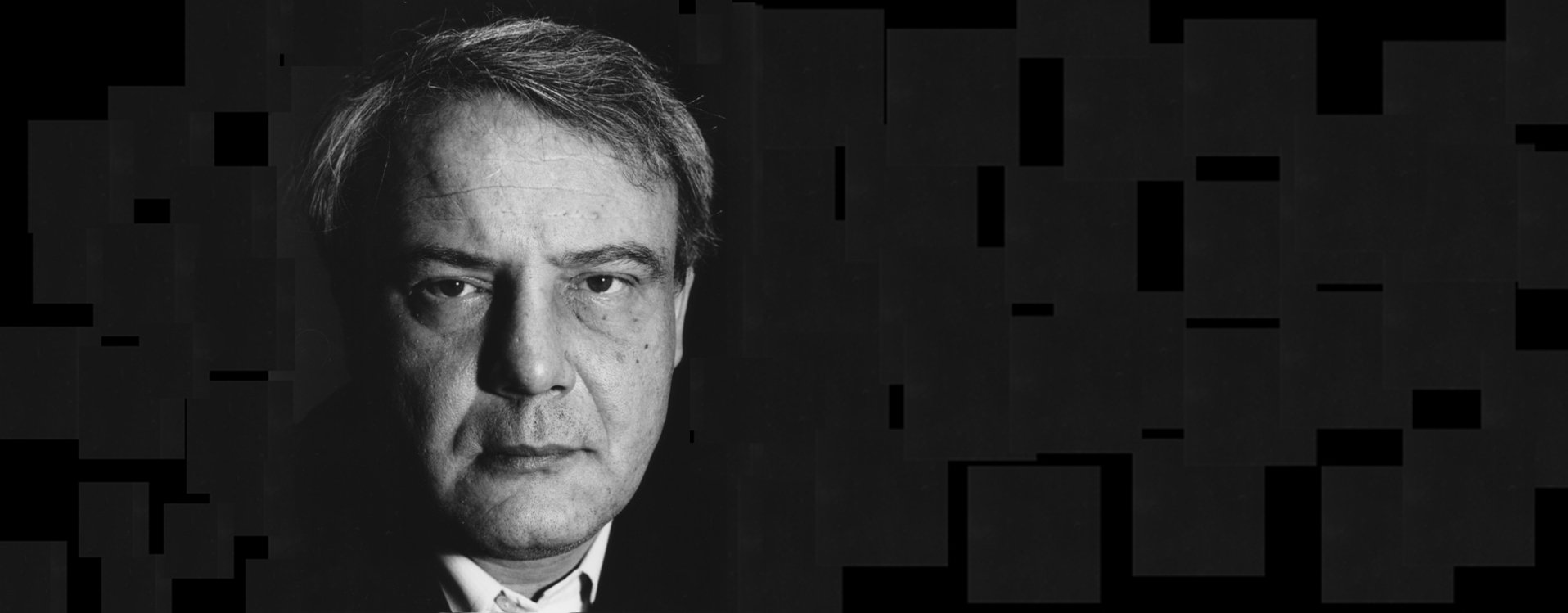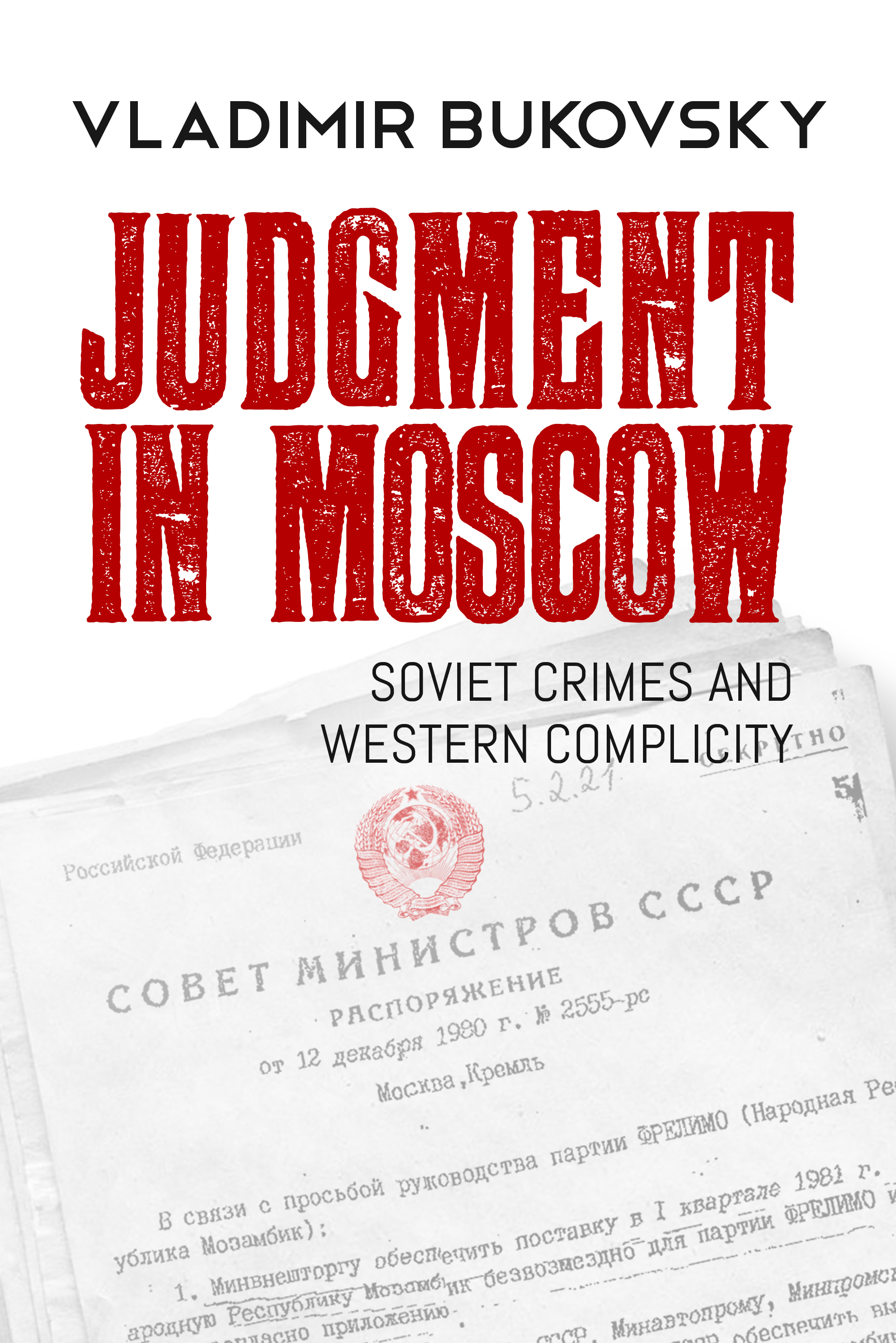Vladimir Bukovsky passed away on 27 October, 2019. See the obituary page.
Vladimir Konstantinovich Bukovsky, once dubbed “a hero of almost legendary proportion among the Soviet dissident movement” by the New York Times, died of cardiac arrest in Addenbrookes Hospital, in Cambridge, England at 9:30 PM Greenwich Time on 27 October, 2019. He was 76. His health had been poor in recent years.
A gifted writer, Bukovsky was revered for his ability to document both the daily insults and grand oppression of Soviet prison life, and to convey with detail the soul-crushing effects of torture on both prisoner and jailer.
Bukovsky's longtime friend and translator, Alyona Kojevnikov, spoke from the hospital: “A very dear friend of many, a brilliant interlocutor, a man of amazing courage and integrity. God rest his soul. They broke the mould after he was made.”
Novelist Vladimir Nabokov praised him as a "courageous and precious man" in a 1974 letter to the editor of The Observer. Nabokov wrote, "Bukovsky's heroic speech to the court in defense of freedom, and his five years of martyrdom in a despicable psychiatric jail will be remembered long after the torturers he defied have rotted away."
Historian and former CIA analyst Richard Pipes said shortly before his death, "Vladimir Bukovsky was an outstanding dissident both in the Soviet Union and abroad, and a man who courageously identified and criticized the totalitarian policies of Moscow. He ought to be remembered as a true hero."
Edward Lucas, editor of Standpoint, said, "Vladimir Bukovsky was a moral and political titan in the existential struggle of the Cold War. His courage and clarity inspired a generation and fueled the victory of dignity, freedom, and justice. Moreover, he also saw that the victory was incomplete--sounding the alarm about Russia's unburied totalitarian and imperialist history."
A leading Russian human rights writer and activist, Bukovsky spent a total of 12 years imprisoned by the USSR. After his release to the West in 1976, he spent his last four decades writing and campaigning against successive regimes in his homeland.
Bukovsky first gained notoriety as a student writer and organizer in Moscow. In 1963, he was arrested for possessing forbidden literature. Rather than put him on trial, Soviet authorities had him declared mentally ill and locked him in a psychiatric hospital -- a common tactic used in the USSR to discredit dissenters and confine them without appearing to be holding political prisoners. He was arrested again in 1967 and sent to a labor camp for three years.
After his release, Bukovsky created an international uproar when he had psychiatric hospital records for six well-known dissidents smuggled to the West in 1971. International psychiatrists’ organizations studied the records and charged Soviet doctors and the government with creating false diagnoses as a way to indefinitely detain possibly thousands of political opponents who showed no medically recognized symptoms of mental illness.
After another prison sentence, In 1976, Bukovsky was deported from the USSR and exchanged by the Soviet government for Luis Corvalán, the imprisoned general secretary of the Communist Party of Chile.
After his release, he settled in Cambridge, England. He authored a best-selling memoir, To Build a Castle, appeared on American TV shows, and met with President Carter at the White House. His most recent book, Judgment In Moscow: Soviet Crimes and Western Complicity (Ninth of November Press) published in English on May 14, 2019, analyzes thousands of pages of top secret Soviet archives he stole in 1992.
Over four decades, Bukovsky played key roles in several political organizations, including Resistance International, Human Rights Foundation, the Cato Institute, and the Victims of Communism Memorial Foundation, which awarded him their Truman-Reagan Medal of Freedom.
At a time when many young Russians waxed nostalgic for the iron fist of Josef Stalin, Bukovsky was a living role model to his native country’s new generation of dissenters. Political activist rock band Pussy Riot credited him as a major influence, one “undeterred by fear” of state retaliation.
Released May 14, 2019
Available in hardcover, paperback, and e-book formats.
Click here for media / review requests
Two decades ago, publishers balked at an English translation of Judgment in Moscow, based on Communist Party archives that Bukovsky stole from Moscow in 1992. Party records documented decades of secret deals and projects to influence or encourage political dissent in the United States and UK, by manipulating media and backing phony grassroots movements.
The book, a success in nine other languages, has finally been translated into an English version approved by the author, with additional present-day commentary by leading journalists on Russia/West relations, and links to the original Communist Party documents.
Foreword by Edward Lucas
Afterword by David Satter
"Bukovsky is sweeping and unsparing in his condemnation of Western cupidity and culpability." – Edward Lucas
Published by Ninth of November Press
“A hero of almost legendary proportion among the Soviet dissident movement”
For nearly 60 years, Vladimir Bukovsky has stood his ground against the constantly changing, yet consistently oppressive rulers of his native Russia. His only weapons are words. Yet his words have prompted one regime after another to try to silence him.
“Bukovsky’s heroic speech to the court in defence of freedom, and his five years of martyrdom in a despicable psychiatric jail will be remembered long after the torturers he defied have rotted away”
In the 70's, he smuggled documents to the West that exposed the Soviet Union's phony psychiatric hospitals -- prisons for thousands of critics -- and wrote a bestselling memoir of his years in these psikhushka.
In the 80's, he warned U.S. and British leaders that the friendly new face of the USSR was a mask.
“A human rights champion undeterred by fear”
In the 90's, he smuggled more documents that outed American and European leaders' secret collaborations with their supposed enemy.
In the 21st century, he has implored Americans to renounce torture in Iraq, and warned repeatedly that the stealthy, ruthless KGB thrives under a new FSB moniker.
Lifetime Highlights
12 years in Soviet camps, prisons and psychiatric hospitals
Exposed the abuse of psychiatry for political purposes in the USSR
Author of bestseller To Build a Castle
Guest on Good Morning America & Firing Line
Met with Jimmy Carter, advised Margaret Thatcher
Masters in Biology, Cambridge
Warned of Soviet-European secret deals
Considered for vice-president by Yeltsin
Testified in hearing on murder of Russian secret service defector and close friend Alexander Litvinenko
Advocate for human rights, freedom of speech
Persistent critic of Putin regime


